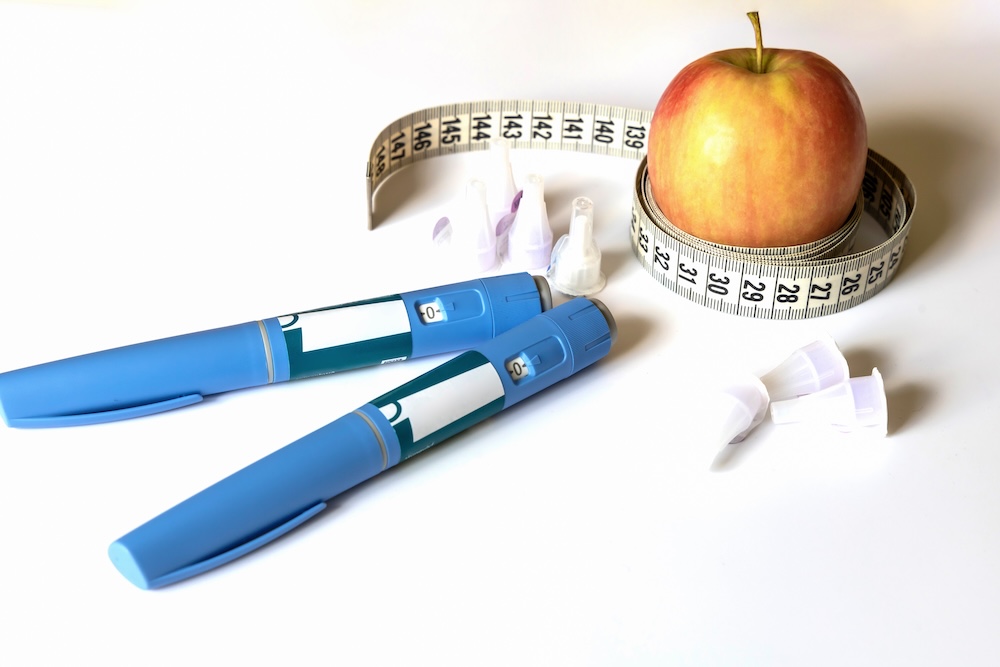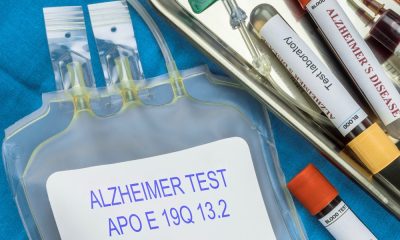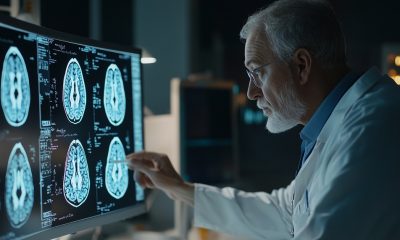News
Blood biomarker may predict dementia before symptoms

New research from NUI Galway and Boston University has identified a blood biomarker that could help identify people with the earliest signs of dementia, even before the onset of symptoms.
The study was published on April 26 in the ‘Journal of Alzheimer’s Disease‘.
Researchers measured blood levels of P-tau181, a marker of neurodegeneration, in 52 cognitively healthy adults, from the US-based Framingham Heart Study, who later went on to have specialised brain PET scans.
The blood samples were taken from people who had no cognitive symptoms and who had normal cognitive testing at the time of blood testing.
The analysis found that elevated levels of P-tau181 in the blood were associated with greater accumulation of ß-amyloid, an abnormal protein in Alzheimer’s disease, on specialised brain scans.
These scans were completed on average seven years after the blood test.
Further analysis showed the biomarker P-tau181 outperformed two other biomarkers in predicting signs of ß-amyloid on brain scans.
Emer McGrath, Associate Professor at the College of Medicine Nursing and Health Sciences at NUI Galway and consultant neurologist at Saolta University Health Care Group was lead author of the study.
“The results of this study are very promising – P-tau181 has the potential to help us identify individuals at high risk of dementia at a very early stage of the disease, before they develop memory difficulties or changes in behaviour,” Professor McGrath said.
The research team said the identification of a biomarker also points to the potential for a population screening programme.
“This study was carried out among people living in the community, reflecting those attending GP practices,” Professor McGrath said.
“A blood test measuring P-tau181 levels could potentially be used as a population-level screening tool for predicting risk of dementia in individuals at mid to late-life, or even earlier.
“This research also has important potential implications in the context of clinical trials. Blood levels of P-tau181 could be used to identify suitable participants for further research, including in clinical trials of new therapies for dementia.
“We could use this biomarker to identify those at a high risk of developing dementia but still at a very early stage in the disease, when there is still an opportunity to prevent the disease from progressing.”
The research was funded in Ireland by a Health Research Board Clinician Scientist Award and in the US by an Alzheimer’s Association Clinician Scientist Fellowship, the National Heart Lung and Blood Institute, the National Institute on Aging, and the National Institute of Neurological Disorders and Stroke.
The full study is available to view here.
Technology
Weight loss jabs my only temporarily reduce ‘food noise,’ study finds
News
Childhood loneliness linked to increased risk of dementia, study finds

Childhood loneliness increases the risk of dementia in later life, according to new research.
Adults who recalled being lonely and without a close friend in childhood faced a 41 per cent higher risk of developing dementia, even if they were no longer lonely as adults.
People who frequently felt lonely without close friends during youth showed accelerated cognitive decline — a worsening of memory and thinking — and started middle age with lower scores on these skills.
Researchers from universities in China, Australia and the US, including Harvard and Boston universities, analysed data from 13,592 Chinese adults tracked from June 2011 to December 2018.
The critical factor was the subjective feeling of loneliness itself. Those who reported often feeling lonely as children had a 51 per cent higher dementia risk, even if some had close friends.
However, those who only lacked close friends but did not feel lonely showed no significant difference in risk.
Nearly half of roughly 1,400 adults in the study reported being lonely and without close friends during childhood.
The 4.2 per cent who experienced both faced the highest risk of cognitive decline.
The link to dementia remained strong even for people who were no longer lonely in adulthood, suggesting early-life isolation can have lasting effects on brain health.
During childhood, the brain develops rapidly and is vulnerable to harm. Loneliness acts as a chronic stressor, flooding the developing brain with harmful hormones that can damage memory centres, and it reduces stimulation from social play and peer interaction that helps build robust neural networks.
A separate 2024 study of more than 10,000 older adults found that specific childhood hardships — including poverty, disruptive home environments or parental addiction — were directly linked to poorer cognitive function later in life.
Youth loneliness appears to be rising, partly linked to widespread social media use.
Among girls, 64 per cent aged five to seven, 67 per cent aged eight to 10, and 73 per cent aged 11 to 13 reported feelings of loneliness last year. More than a quarter of boys aged 11 to 17 in the US report feeling lonely.
Children face growing social isolation, with one in four Americans now eating every meal alone — a rate that has surged by over 50 per cent since 2003. Sharing meals with friends and family helps build bonds and positive memories in youth.
Fewer children are playing outside or joining team sports.
A recent study reported that one in three children do not play outside on school days, and one in five do not do so even at weekends.
The 2024 research found a direct, dose-dependent relationship between childhood adversity and cognitive problems in adults — the greater the early trauma, the greater the later risk.
For each significant increase in early trauma, individuals faced an eight per cent higher risk of daily memory issues and scored lower on objective tests of mental speed and focus.
News
Don’t miss you essential monthly agetech update

Your essential monthly update on agetech’s progress
Welcome to your monthly snapshot of the facts, figures, opinions, trends and challenges shaping the development of agetech.
Our new monthly tracker report aims to provide an concise update for busy agetech professionals on the many factors influencing your work.
Here you will find a concise breakdown of deals, developments and opportunities from the last 30 days; and insight and opinion from leading thinkers in the field.
We hope you find something useful and/or inspiring below – and welcome any feedback about what else you’d like to see included.

 Wellness1 month ago
Wellness1 month agoGlasgow clinic launches Alzheimer’s detection test

 News3 weeks ago
News3 weeks agoUK aims for 92 per cent dementia diagnosis by 2029

 News5 days ago
News5 days agoOne in 20 children has high blood pressure, study finds

 News1 month ago
News1 month agoRoundup: Atlas maps molecular fingerprints of health, disease and ageing

 Insights3 weeks ago
Insights3 weeks agoAddressing the rising burden of benign prostatic hyperplasia with minimally invasive treatments to tackle healthcare pressure

 News2 months ago
News2 months agoTool could detect early signs of Alzheimer’s

 News4 weeks ago
News4 weeks agoYounger Britons more worried about dementia than older generations, new poll reveals

 News1 week ago
News1 week agoNHS issues heart valve plea after donations dip


































